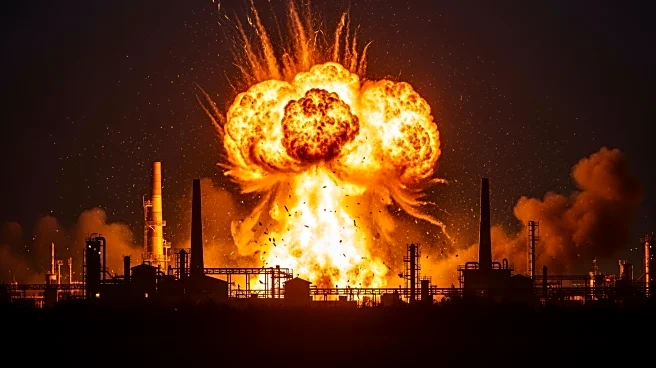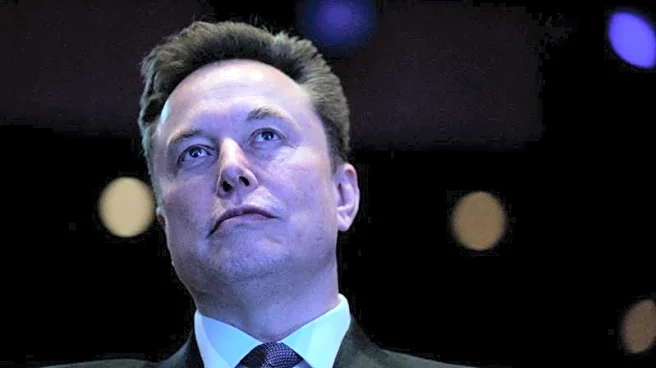What's Happening?
Ukraine has launched a strategic attack on the Bryansk Chemical Plant in Russia using British-made Storm Shadow cruise missiles. This facility, located near the Ukrainian border, is crucial for producing
gunpowder, explosives, and rocket fuel components for Russian munitions. The attack is part of Ukraine's broader campaign to target strategic military-industrial sites within Russia, aiming to weaken the offensive capabilities of the Russian military. The Ukrainian General Staff confirmed the involvement of the Air Force, Land Forces, and Navy in the operation, which also targeted energy infrastructure, causing power outages in nearby Russian regions. The Bryansk Chemical Plant has been previously targeted, with past strikes reportedly involving U.S.-made ATACMS missiles.
Why It's Important?
The attack on the Bryansk Chemical Plant represents a significant escalation in Ukraine's efforts to disrupt Russian military production and logistics. By targeting key facilities that supply and repair heavy weaponry, Ukraine aims to diminish Russia's combat capabilities on the battlefield. This strategy could potentially shift the dynamics of the ongoing conflict, impacting Russia's ability to sustain its military operations. The strikes also highlight Ukraine's increasing reliance on advanced missile technology provided by Western allies, which could influence future military aid and geopolitical relations. The disruption of energy infrastructure further complicates the situation for Russian civilians, adding pressure on the Russian government.
What's Next?
Ukraine is likely to continue its campaign of deep strikes against Russian military and industrial targets, seeking to secure more long-range missiles from allies. The Ukrainian government has been lobbying for additional missile support, including Tomahawk cruise missiles from the United States. The success of these operations may lead to increased international support and potentially more advanced weaponry. Meanwhile, Russia may respond with heightened security measures and retaliatory strikes, further intensifying the conflict. The ongoing attacks could also prompt diplomatic discussions among NATO members regarding military aid and strategic support for Ukraine.
Beyond the Headlines
The strategic targeting of military-industrial sites raises ethical and legal questions about the conduct of warfare and the impact on civilian infrastructure. The attacks could lead to long-term shifts in military strategy, emphasizing the importance of disrupting supply chains and production capabilities. Additionally, the reliance on advanced missile technology underscores the evolving nature of modern warfare, where precision strikes play a crucial role in achieving strategic objectives. The situation also highlights the complex geopolitical landscape, with Western nations balancing support for Ukraine against the risk of escalating tensions with Russia.











